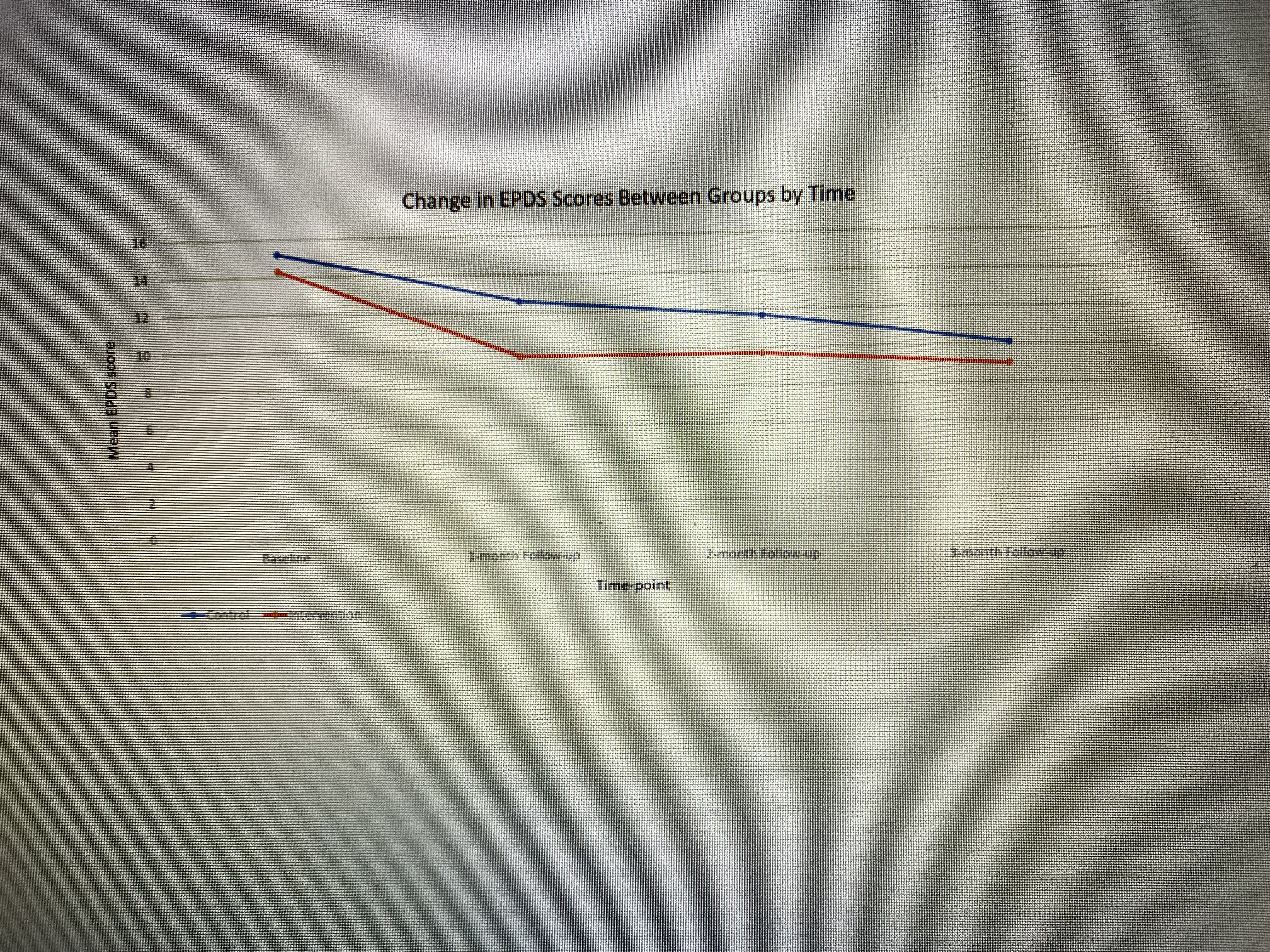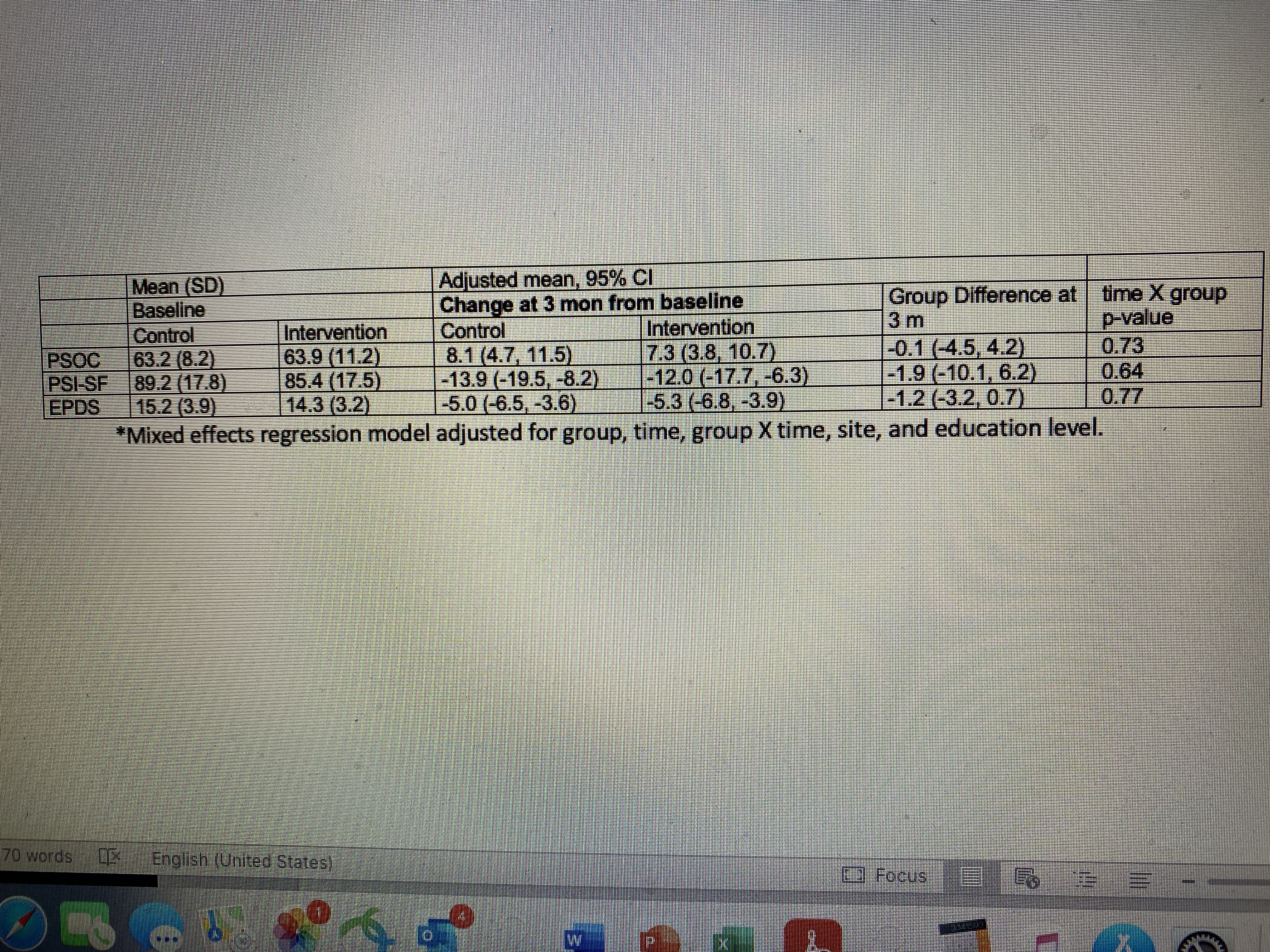Back
Mental Health
Category: Abstract Submission
Mental Health II
531 - A Social Media-based Parenting Program for Mothers with Postpartum Depression: An RCT
Monday, April 25, 2022
3:30 PM – 6:00 PM US MT
Poster Number: 531
Publication Number: 531.423
Publication Number: 531.423
James P. Guevara, Perelman School of Medicine at the University of Pennsylvania, Philadelphia, PA, United States; David S. Mandell, University of Pennsylvania School of Medicine, Philadelphia, PA, United States; Talia Charidah, Children's Hospital of Philadelphia, Philadelphia, PA, United States; Michael E. Luethke, Children's Hospital of Philadelphia, Philadelphia, PA, United States; Marjie Mogul, Maternity Care Coalition, Philadelphia, PA, United States; Knashawn H. Morales, Perelman School of Medicine at the University of Pennsylvania, Philadelphia, PA, United States; Laura M. Betancourt, Laura M. Betancourt, Bala Cynwyd, PA, United States; Rhonda Boyd, Childrens Hospital of Philadelphia, Philadelphia, PA, United States

James Guevara, MD, MPH (he/him/his)
Professor of Pediatrics
Childrens Hospital of Philadelphia
Philadelphia, Pennsylvania, United States
Presenting Author(s)
Background: Women with postpartum depressive (PPD) symptoms have been reported to incur high parenting stress and low parenting competence.
Objective: We sought to test the effects of a novel social media-based parenting program for new mothers with PPD symptoms on depressive symptoms, parenting stress, and parenting competence.
Design/Methods: The Parenting with Depression study was a randomized controlled trial of a social media-based parenting intervention that utilized a Facebook platform. Women with mild-moderate depressive symptoms (Edinburgh Postnatal Depression Scale [EPDS] 10-19) and without suicidality were enrolled from 6 urban primary care pediatric clinics from November 2019 to August 2021. Women were randomized to the intervention plus MoodGym, an online CBT program, or MoodGym alone for 3 months. Women completed the EPDS monthly and the Parenting Stress Index-Short Form (PSI-SF) and Parenting Sense of Competence (PSOC) pre- and post-intervention. Differences in outcomes were assessed using intention-to-treat analysis.
Results: 75 women were enrolled in the study: 38 in intervention and 37 in control. Participants were mainly Black (69%), single (57%), and with incomes Conclusion(s): A social media-based parenting program led to a more rapid decline in depressive symptoms but similar improvements in parenting stress and competence as an enhanced control group with access to a CBT program. Social media may be an important platform to provide parenting education and support for women with PPD symptoms.
Figure. Change in EPDS Scores Between Groups by Time
Table. Adjusted Change in EPDS, PSI-SF, and PSOC Scores at Follow-up
Objective: We sought to test the effects of a novel social media-based parenting program for new mothers with PPD symptoms on depressive symptoms, parenting stress, and parenting competence.
Design/Methods: The Parenting with Depression study was a randomized controlled trial of a social media-based parenting intervention that utilized a Facebook platform. Women with mild-moderate depressive symptoms (Edinburgh Postnatal Depression Scale [EPDS] 10-19) and without suicidality were enrolled from 6 urban primary care pediatric clinics from November 2019 to August 2021. Women were randomized to the intervention plus MoodGym, an online CBT program, or MoodGym alone for 3 months. Women completed the EPDS monthly and the Parenting Stress Index-Short Form (PSI-SF) and Parenting Sense of Competence (PSOC) pre- and post-intervention. Differences in outcomes were assessed using intention-to-treat analysis.
Results: 75 women were enrolled in the study: 38 in intervention and 37 in control. Participants were mainly Black (69%), single (57%), and with incomes Conclusion(s): A social media-based parenting program led to a more rapid decline in depressive symptoms but similar improvements in parenting stress and competence as an enhanced control group with access to a CBT program. Social media may be an important platform to provide parenting education and support for women with PPD symptoms.
Figure. Change in EPDS Scores Between Groups by Time

Table. Adjusted Change in EPDS, PSI-SF, and PSOC Scores at Follow-up

